#experiential learning with Nep
Text
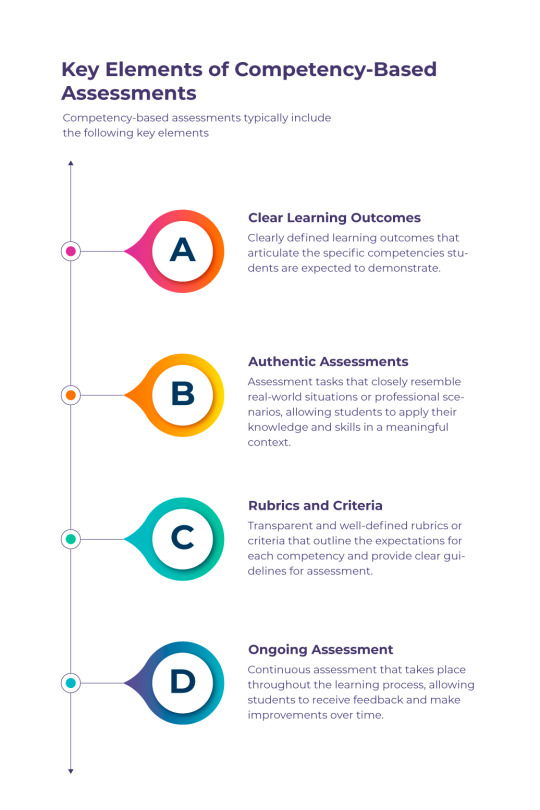
The Essential Elements of Competency-Based Assessment
Competency-based assessment requires clear objectives, valid and reliable measures of competency, and meaningful feedback. These elements ensure that the assessment is accurate and provides useful information to the learner.Competency-based assessment is an evaluation technique that focuses on a learner's ability to demonstrate the knowledge, skills, and attitudes necessary to achieve a predetermined learning goal. It focuses on the mastery of skills and knowledge, rather than the amount of time spent on a task.
Entab's Competency-Based Assessments provide an innovative approach to evaluation tailored to individual student needs. It focuses on assessing students' knowledge and skills rather than performance. This approach encourages students to take ownership of their learning and reach their full potential.
#experiential learning with Nep#nep 2020 teacher education#teacher education in nep 2020#experiential learning lesson plans#competency based assessment#competency based evaluation#competency learning#assessment teaching#competency based teaching#competency based#nep 2020#national education policy 2020
0 notes
Text
STEMROBO Plans to Hire Innovation Engineers to train 10,000 Local School Teachers
The company focuses on training local school teachers in regional languages across the country.

Edtech company STEMROBO Technologies has announced its plans to expand its team size by 350 employees by March 2023, as per an official statement. Further, the development is aligned with the plan of empowering K-12 schools to be 21st Century Showcase Schools aligned with NEP 2020. STEMROBO plans to develop a complete ecosystem in these schools through its unique programs such as STEM Education, Robotics, Coding, AI and Experiential Learning.
EdTech STEMROBO Technologies aims to reach out to 10000 educators by next year.
Furthermore, the bootstrapped start-up aims at hiring 50% women innovation engineers from tier 2 and tier 3 cities such as Bhopal, Chandigarh, Faridabad, Coimbatore, Visakhapatnam, Dehradun, Ghaziabad, Lucknow, Ranchi, and Srinagar.
“With this recruitment drive, our plan is to have our expert innovation engineers present across each district of India who can train the school teachers in that particular region in their local language. Along with this, we are also working on building an educators’ network under our initiative ‘Tinker for Bharat’,” Anurag Gupta, founder, STEMROBO Technologies, said.
In addition, in line with NEP 2020, STEMROBO has come up with its graded computer books which are covering Computer Basics, Coding and Artificial Intelligence.
Source: http://bit.ly/3zXTQYU
Contact US
website: https://www.stemrobo.com/
Email- [email protected]
Toll Free: 1800-120-500-400,
Mobile: +91-7905087639
#Innovation Engineers#NEP 2020#STEMROBO#Tinker for Bharat#AI and Experiential Learning#Stem Education#Atal Tinkering Lab#STEM Education Atal Tinkering Lab
0 notes
Text
2023 and 2024 New Education Policies Comparison
Introduction to India's Educational Reform
The introduction of the New Education Policy (NEP) in 2023 marked a significant milestone in India's educational reform, aiming to modernize, inclusivism, and elevate the quality of education to meet global standards. The subsequent evolution in 2024 further underscored the country's commitment to transforming its education system to address the diverse needs of its student population from preschool through higher education. Both policies collectively signify a monumental shift towards enhancing educational accessibility, quality, and innovation across India.
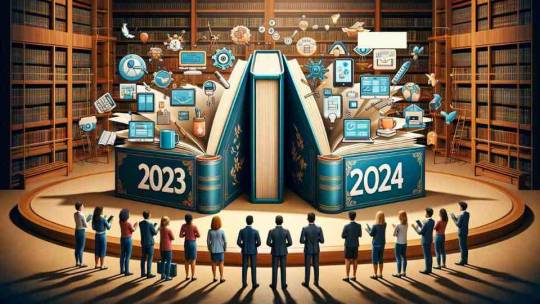
Genesis and Objectives of NEP 2023 and 2024
NEP 2023 emerged from extensive consultations with experts, educators, policymakers, and stakeholders, aiming to align India's education system with global standards and foster holistic student development. It sought to bridge gaps between traditional and contemporary pedagogical methods, emphasizing inclusivity, flexibility, and innovation.
New Education Policy 2024 built upon the foundational aims of its predecessor, focusing on digital empowerment, holistic learning, and a robust framework for skill development. It represents a philosophical rebirth designed to cater to the modern world's demands, positioning India as a formidable information powerhouse on the international stage.
Key Features and Innovations
Early Childhood Care and Education (ECCE)
Both policies recognize ECCE's paramount importance, with 2023 focusing on foundational learning stages and 2024 placing unprecedented emphasis on ECCE to establish a strong base for every child's educational journey.
Curriculum and Pedagogy
2023: Advocates for a flexible, interdisciplinary curriculum that encourages critical thinking, problem-solving skills, and the integration of vocational skills into mainstream education.
2024: Introduces a novel 5+3+3+4 curriculum structure aimed at experiential and skill-oriented learning, promising a seamless educational continuum from early years to secondary schooling.
Assessment Reforms
2023: Proposes shifting from rote learning and high-stakes exams to a more holistic, competency-based assessment system.
2024: Aims to revolutionize assessments with comprehensive, adaptive mechanisms that foster deeper, application-oriented learning.
Digital Education and Technology Integration
Both policies emphasize the role of technology in education, with 2023 focusing on promoting digital literacy and online learning, and 2024 taking significant strides towards digitalizing all schools and making quality education accessible through digital platforms like DIKSHA.
Teacher Training and Development
Continuous professional development for teachers is a focus in both policies. 2023 introduces integrated teacher education programs, while 2024 continues to ensure educators are equipped with modern pedagogical skills.
Inclusivity and Accessibility
2023 emphasizes special education programs and inclusive education for students with disabilities. 2024 commits to making education accessible to all, breaking down barriers for socio-economically disadvantaged groups.
Comparative Analysis: Implementation and Evolution
NEP 2023 laid the foundational framework for a comprehensive overhaul of India’s educational infrastructure, focusing on early child education, curriculum reform, and assessment changes. NEP 2024 promised further advancements, including the introduction of coding from a young age, advocating for multidisciplinary institutions and flexible course structures, and implementing an innovative academic credit bank system.
Detailed Exploration of Goals and Aspirations
Both policies share the overarching ambition of elevating India’s educational standards to global acclaim. NEP 2023 initiated this journey by addressing the evolving needs of the education system, while NEP 2024 aimed to solidify India’s status as a global knowledge superpower through strategic amendments aimed at enhancing educational quality and accessibility.
Impact on Preschools and Early Childhood Education
The NEP recognizes the critical role of preschool education in laying a strong foundation for a child’s future learning journey. NEP 2023 and 2024 collectively emphasize curriculum enhancement, teacher training, assessment practices, digital integration, a multilingual approach, and inclusivity, significantly impacting preschools and early childhood education centers across the nation.
Challenges and Opportunities
Implementing such transformative policies is not without its challenges, including the need for substantial teacher training, infrastructure development, technological access, and ensuring inclusivity. However, these reforms also present unparalleled opportunities for fostering a generation of students who are well-prepared for the complexities of the modern world, equipped with critical thinking skills, digital literacy, and a strong educational foundation.
Stakeholder Perspectives
The success of NEP 2023 and 2024 hinges on collaborative efforts from all stakeholders, including educators, parents, policymakers, and the community at large. Their active engagement, feedback, and adaptation are crucial for realizing the policies' full potential and creating an educational ecosystem that empowers every child in India.
Conclusion: A Progressive Continuum Towards Educational Excellence
The NEPs for 2023 and 2024 are progressive steps in the direction of remaking Indian education; while each has a distinct area of emphasis, they all work together to create a framework that is inclusive, adaptable, and contemporary. These initiatives seek to equip Indian students not only for regional achievement but also for success in the global arena. The transition from NEP 2023 to 2024, which represents India's continued path of educational reform, offers a clear picture of a future in which high-quality education will be available to everyone and raise a generation of internationally aware, enlightened citizens who are prepared to contribute to both national and global advancement.
Check: Preschool in Wagholi, Preschool in Noida
#new education policies 2023 vs 2024#new education policy#new education policy 2023#new education policy 2024
0 notes
Text
Trending Engineering Educational Sectors

Engineering Educational Sector
Since years, the engineering activities have been the core enablers of civilizational transformation. New technologies, engineering systems and products have been and continue to be the at the centre in sectors related to food, water, hygiene, clothing, housing, defense, energy, manufacturing, transportation, and in healthcare, education, entertainment, finance, governance, etc. Hence, despite the evolution of many other industry-specific courses, engineering education at best engineering colleges in Jaipur remains as one of most attractive options for students across the world.
A huge number of students continue to enrol in engineering courses as Industry 4.0 and Net-Zero Transition technologies present many bright career opportunities. Further, as engineering education mainly focusses on strengthening analytical and problem-solving skills, many engineering graduates find it easy to use their education for other career pursuits.
According to the research conducted by the experts of engineering colleges Jaipur, there are companies about new job openings in FY23 as the country’s economy is on a growth trajectory. It is based on a survey among executive-level managers and HR leaders covering sectors like construction and engineering, auto and auto ancillary, education, hospitality, FMCG, banking, and finance, among others. There are some emerging trends that are shaping the engineering education in the country today:
Outcome-based Education (OBE)
Outcome-based engineering education seeks to nurture students’ ability to conceive, design, implement, and operate complex value-added engineering products, processes, and systems in a modern team-based environment. Many progressive institutes are carefully defining their Program Educational Objectives, Program Outcomes, Program Specific Outcomes, Program-specific desired minimum level of competence for POs and PSOs, Course Outcomes, Course Articulation Matrices, Program Articulation Matrices, and also developing their monitoring systems for Course level and Program Level Outcome Attainment.
OBE’s implementation requires that students of top engineering college in Jaipur are repeatedly engaged in the core engineering processes like designing, predicting performance, building, and testing throughout the curriculum. Many universities and engineering institutes are making systematic reforms to implement OBE effectively through appropriate inclusion of inductive pedagogies like project-based learning (PBL), experiential learning, etc.
Choice Based Credit System (CBCS)
UGC introduced CBCS to make higher education broad-based and promote learner-centricity, flexibility, and inter-disciplinarity. Extent of its implementation is an important parameter in NAAC accreditation process. NEP has also supported it. Some universities have already implemented CBCS in their engineering programs and many more are in the process of doing so.
Industry-specific programs
Many universities and institutes of top BTech colleges in Jaipur are including industry-specific engineering courses in their curricula. In these programs, the students are exposed to the latest engineering tools, technologies and trends in the engineering sector. The courses are also regularly updated from time to time.
Flexibility of External Courses
Many universities are offering flexibility to earn credits through MOOCs and courses at partner universities in India or abroad. In addition to facilitating several courses, some progressive universities have even entered partnerships with online education providers like Coursera and edX and free/paid access to these online courses to their engineering students. Faculty are integrating these online courses in their curricula in many different ways. Also, some universities offer the option for doing a semester at some partner university abroad.
Industry Internships
For many decades, one summer internship has been an essential component of almost all engineering programs of the list of engineering colleges in Jaipur. Earlier, only a few universities had also created a provision of a full semester-long internship in the final year. Now many more universities follow this model. While, there are serious difficulties in managing short-term summer internships, industry is much more interested in engaging students for this full semester-long final year internship.
Focus on Sustainability
Institutions of higher education have started to include sustainability in the curriculum of various disciplines across the globe. Ability to consider sustainability related issues in engineering processes of planning, design, implementation, etc., is now considered as an essential desired program outcome of many engineering programs. Many universities are transforming their engineering curricula to include sustainability related topics in their courses. NAAC’s requirement of various green campus initiatives is also supplementing this trend.
Soft skills development
Communication and other soft skills are essential for engineers of engineering college Jaipur as they are expected to be proficient in presentation, organization, leadership, and conflict resolution. Increasingly the engineering institutes have been including soft skills development programs and courses in their curricula in many different ways.
Building entrepreneurial and innovative abilities
Entrepreneurship and innovation have the potential of turning fresh graduates into job providers rather than job seekers. Understanding the true potential of entrepreneurship, institutes are building incubation centers to help students hatch their innovative plans. Engineering institutes are also providing all necessary support from finance to infrastructure to students today and many students have come up with successful start-ups because of this process. Some universities have started giving the option to students to work on their own start-ups in lieu of internships and/or projects work.
Conclusion
As industries and businesses across sectors are evolving by leveraging new technologies like Artificial Intelligence, Automation & Robotics, New Materials, New Manufacturing & Construction Technologies, Biotechnology, Clean Technologies, Big Data, Internet of Things (IoT), High performance Computing, AR/VR, Blockchain, etc. Engineering institutes like best BTech colleges Jaipur are transforming their curricula to meet the new demands of the industry by including these technologies in their curricula and also adopting transformative approaches. Also, it includes increasing emphasis on industry internships, sustainability, soft skills, innovation, and entrepreneurship, as well as offering options for external credits and industry specific programs.
Many progressive universities are redefining and transforming their curricula and students experience in different ways. With these new trends, the engineering education is becoming ready for producing engineers who can take the country’s economy and technological might to newer heights. For motivated students, the engineering education continues as a great gateway for some of the best career options. It also offers the opportunities to prepare themselves as change agents to transform the world and make it more beautiful, prosperous, happier, healthier, and sustainable.
Source: Click Here
#best btech college in jaipur#best engineering college in jaipur#best engineering college in rajasthan#b tech electrical in jaipur#best private engineering college in jaipur#top engineering college in jaipur#best btech college in rajasthan
0 notes
Text
Corporate Social Responsibility (CSR) Done Right: Impactful Projects That Make a Difference
In recent years, the concept of Corporate Social Responsibility (CSR) has evolved from a mere obligation to a strategic imperative for businesses worldwide. Companies are increasingly recognizing the importance of giving back to society and investing in projects that create positive social and environmental impact. In this context, impactful CSR initiatives have emerged as powerful tools for driving meaningful change and fostering sustainable development. Let's explore some examples of CSR projects of Smile Foundation that are making a real difference in communities around the world.
Project Manzil
In rural Rajasthan, where societal norms often dictate the paths of young girls, initiatives like Smile Foundation's Project Manzil are reshaping futures. Seema, once pushed towards traditional courses, found her calling in office assistance, breaking stereotypes with the support of Manzil's community motivators. As the world celebrates women in science and technology, Manzil empowers girls to pursue non-traditional fields like IT and retail, doubling enrollment numbers since its inception.
Traditionally, jobs like beauty and tailoring have been synonymous with femininity, providing income opportunities while keeping women indoors. However, limitations arise when girls are confined to these sectors, hindering their potential for career growth and exposure. Manzil's community motivators challenge these norms, encouraging girls to explore diverse career paths beyond traditional roles, fostering a new generation of empowered women.
Through initiatives like Project Manzil, young girls in rural India are breaking barriers and pursuing their dreams in fields like science, technology, and finance. As women continue to make strides in traditionally male-dominated fields, Manzil serves as a beacon of empowerment, proving that with skill training and support, girls can excel in any field they choose, reshaping the narrative of gender roles and empowering communities for a brighter future.
STEM Initiative (Nxplorers)
India's educational landscape is evolving with the implementation of the National Education Policy (NEP) 2020, aiming for inclusivity and adaptability in the digital era. At the heart of this transformation lies the recognition of teachers as educational leaders, entrusted with shaping conducive learning environments. Hence, specialized teacher training programs are essential to equip educators with the necessary skills and confidence to assume leadership roles.
NEP 2020 addresses critical gaps in the education system, emphasizing the urgency to improve foundational skills among students. With a majority of schools being government-run and lacking access to digital resources, preparing students for the future becomes even more challenging. This underscores the significance of teacher development initiatives to bridge these gaps.
The NEP 2020 emphasizes continuous teacher learning and integration of technology into training processes. It intervenes at crucial points in a teacher's professional journey, offering guidance on recruitment, career progression, and lifelong learning. Additionally, specialized teacher training programs of Smile Foundation focusing on STEM subjects align with NEP goals, promoting experiential learning and innovation to prepare students for a dynamic world. Through collaborative efforts like these, India's education system can thrive, empowering teachers and students alike.
Nutrition Enhancement Program
Anemia, a condition characterized by low red blood cell count or hemoglobin levels, remains a significant health concern in India, particularly among pregnant women and infants in rural areas. Despite government initiatives like Anemia Mukt Bharat, the prevalence of anemia persists, affecting up to 50-60% of pregnant women and 58% of children under five years old nationwide. This poses serious health risks and perpetuates cycles of poverty, emphasizing the need for effective interventions.
In Sangrur, Punjab, anemia presents unique challenges despite its relative prosperity. Factors such as dietary habits, cultural practices, and limited healthcare access contribute to high anemia rates in this region. Traditional diets lacking in essential nutrients like iron, coupled with cultural norms surrounding food preparation and consumption, exacerbate the problem. Limited access to quality healthcare further impedes early detection and management of anemia among vulnerable populations.
Addressing anemia requires a multifaceted approach, involving nutritional interventions, supplementation programs, improved healthcare access, and education. Government initiatives like Anemia Mukt Bharat and Pradhan Mantri Surakshit Matritva Abhiyan aim to reduce anemia prevalence by promoting iron and folic acid supplementation and enhancing healthcare services. Additionally, targeted interventions by organizations like Smile Foundation, such as dietary interventions in schools and counseling sessions, have shown promising results in combating anemia among children. Collaboration between government bodies, development organizations, and communities is essential to achieve an anemia-free future and ensure the health and well-being of all individuals, especially the most vulnerable.
Telemedicine Project- Mewat
Access to healthcare is a fundamental aspect of well-being, impacting not just physical health but also financial, familial, and social aspects of life. In remote areas like Mewat, Haryana, India, where access to modern healthcare is limited, initiatives like the one undertaken by Smile Foundation and Philips are crucial in bridging the gap through technology. Especially in the wake of the Covid-19 pandemic, physical consultations with doctors became challenging for the community members of Mewat, necessitating innovative solutions.
The partnership between Smile Foundation and Philips India facilitated the implementation of a mobile telemedicine unit, bringing healthcare services directly to the doorstep of rural communities in Mewat. Through 269 mobile OPDs conducted during the reporting period, a total of 13,753 patients were treated, demonstrating the effectiveness of digital healthcare interventions in addressing the healthcare needs of underserved populations. This initiative not only overcome geographical barriers but also leveraged technology to provide timely medical assistance to those in need.
The success of this healthcare project is underscored by stories like that of Mr. Shankar Hadpad, a farmer who struggled with a skin disease for two years without relief from traditional medical treatments. Through the Smiles on Wheels (SoW) service, Mr. Hadpad received counseling and treatment, resulting in significant improvement in his condition. Telemedicine consultations have emerged as a lifeline for rural communities, offering access to primary healthcare services and contributing to improved health outcomes in underserved areas.
These examples of impactful CSR projects demonstrate the potential for businesses to drive positive change in society. By aligning their corporate objectives with the needs of communities and the environment, companies can create lasting social impact while also enhancing their reputation and long-term sustainability. Through continued commitment to responsible business practices, corporations can play a crucial role in building a better and more equitable world for all.
0 notes
Text
Clevered: Artificial Intelligence Lab for Schools and the Implications of NEP 2020

In the ever-evolving landscape of education, the integration of Artificial Intelligence (AI) has emerged as a transformative force, offering boundless opportunities for learning and innovation. With the advent of the National Education Policy (NEP) 2020, India has taken significant strides towards embracing AI in education, recognizing its potential to equip students with the skills needed for the future. In this context, the establishment of AI Coding Labs in schools stands as a pivotal initiative, poised to shape the next generation of thinkers, problem-solvers, and creators.
Understanding the Significance of AI Coding Labs:
AI Coding Labs serve as dynamic spaces where students are introduced to the fundamentals of AI and coding from an early age. These labs provide hands-on experience, fostering a deep understanding of AI technologies such as machine learning, neural networks, and natural language processing. By engaging in real-world projects and challenges, students develop critical thinking, computational thinking, and problem-solving skills essential for success in the digital age.
NEP 2020 and the Paradigm Shift in Education:
The National Education Policy (NEP) 2020 marks a paradigm shift in the Indian education system, emphasizing holistic development, flexibility, and the integration of technology. With its focus on skill-based learning and experiential education, NEP 2020 aligns seamlessly with the objectives of AI Coding Labs, providing a framework for their implementation across schools nationwide.
Key Objectives of AI Coding Labs:
Promoting Digital Literacy: AI Coding Labs play a crucial role in promoting digital literacy by familiarizing students with AI technologies and programming languages. Through hands-on activities and projects, students develop fluency in coding, enabling them to navigate the digital landscape with confidence.
Fostering Innovation: By encouraging experimentation and exploration, AI Coding Labs foster a culture of innovation among students. Through collaborative projects, students learn to apply AI concepts creatively, developing solutions to real-world problems and contributing to technological advancement.
Building Critical Skills: AI Coding Labs focus on nurturing critical skills such as problem-solving, analytical thinking, and creativity. Through interactive learning experiences, students learn to approach challenges methodically, fostering resilience and adaptability in the face of change.
Preparing for the Future: In a world increasingly shaped by AI and automation, AI Coding Labs prepare students for the jobs of tomorrow. By equipping them with in-demand skills such as coding, data analysis, and AI proficiency, these labs empower students to thrive in the digital economy.
Integrating AI Coding Labs into the Curriculum:
The successful implementation of AI Coding Labs requires a strategic approach that integrates them seamlessly into the existing curriculum. Schools must allocate dedicated resources for the establishment and maintenance of these labs, including trained educators, infrastructure, and software tools. Furthermore, collaboration with industry partners and experts can enrich the learning experience, providing students with insights into real-world applications of AI.
Impact of AI Coding Labs on Students:
The impact of AI Coding Labs extends far beyond the acquisition of technical skills. By nurturing curiosity, creativity, and collaboration, these labs cultivate a growth mindset among students, empowering them to embrace lifelong learning and adaptability. Moreover, by fostering diversity and inclusivity, AI Coding Labs ensure that all students have equal access to opportunities in the field of AI, regardless of their background or socioeconomic status.
Conclusion:
In conclusion, the establishment of Artificial Intelligence Lab for Schools represents a significant step towards realizing the vision of NEP 2020 and preparing students for the challenges and opportunities of the future. By equipping students with the skills, knowledge, and mindset needed to thrive in a digital world, AI Coding Labs empower them to become active contributors to society and drivers of technological innovation. As we embark on this transformative journey, let us embrace the potential of AI in education and pave the way for a brighter, more inclusive future for all.
#artificial intellegence#artificial intelligence lab#Coding Lab for school#AI lab for School#Artificial Intelligence Curriculum for schools#NEP 2020
0 notes
Text
Unlocking Success: Adharshila Academy – The Premier Coaching Institute in East Delhi
In the bustling streets of East Delhi lies a beacon of academic excellence - Adharshila Academy. With a proud legacy spanning over two decades, Adharshila stands tall as one of the most reputable coaching institutes, nurturing students to conquer the challenges of Engineering and Medical entrance exams, alongside excelling in board examinations.
Best Coaching Centre in Acharya Niketan: Adharshila Academy's Distinctive Approach
Located in the heart of Acharya Niketan, Adharshila Academy emerges as the undisputed leader in providing comprehensive coaching for various competitive exams. With a dedicated faculty and state-of-the-art infrastructure, students find themselves immersed in an environment conducive to learning and growth.
Best JEE Coaching in Mayur Vihar: Achieve Your IIT Dreams with Adharshila Academy
Mayur Vihar resonates with the aspirations of countless young minds dreaming of cracking the prestigious IIT-JEE exams. At Adharshila Academy, these dreams find wings to soar. Our meticulously designed courses, aligned with the latest trends and requirements, ensure that students are well-prepared to tackle the toughest of challenges.
PCM Coaching in Vinod Vihar: Building Strong Foundations for Engineering Aspirants
In the pursuit of engineering excellence, a strong foundation in Physics, Chemistry, and Mathematics (PCM) is paramount. Adharshila Academy, situated in Vinod Vihar, offers specialized PCM coaching, catering to the specific needs of aspiring engineers. Our expert faculty and comprehensive study materials empower students to master these fundamental subjects with ease.
Tuition Centre in Mayur Vihar: Personalized Attention for Academic Excellence
Recognizing the diverse learning needs of students, Adharshila Academy goes beyond conventional methods by offering personalized tuition support. In the bustling hub of Mayur Vihar, our tuition center becomes a sanctuary for students seeking individualized attention and guidance. Whether it's clarifying doubts or reinforcing concepts, our mentors are dedicated to nurturing each student's potential.
JEE Coaching in Delhi: Embracing the NEP 2020 Vision
With the dawn of the New Education Policy (NEP) 2020, Adharshila Academy stands at the forefront of educational innovation. Our courses are meticulously crafted in accordance with the NEP guidelines, ensuring that students not only excel in examinations but also develop a holistic understanding of their subjects. Interactive learning methodologies and experiential teaching techniques further enhance the educational experience at Adharshila. In conclusion, Adharshila Academy epitomizes excellence in coaching, offering a holistic approach towards academic success. Whether it's achieving mastery in PCM subjects, cracking competitive exams like IIT-JEE and NEET-UG, or excelling in board examinations, Adharshila provides the perfect platform for students to realize their dreams. With its strategic locations across East Delhi and a commitment to embracing educational reforms, Adharshila Academy continues to be the
0 notes
Text
Understanding the program design for TSUS students in 2024
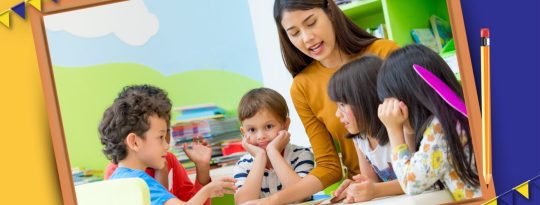
The Curriculum and Pedagogical approach at the Shri Ram Universal School is “Child Centric” and aligns well with NEP 2020. The entire teaching learning program and the design for school children has taken a 360-degree turn to suit new trends of learning. Interactive learning is a key area of focus and the students are engaged and inspired constantly. Visual elements and games hold immense potential alongside Auditory and Tactile approaches that enable higher aptitude conceptually. Experiential Learning brings in additional colour to the Factual information. Children are motivated to comprehend, connect, correlate analyse and synthesise information actively., Zen spaces and Open space Learning adds colour to every learning experience leaving behind the scope for extended learning.
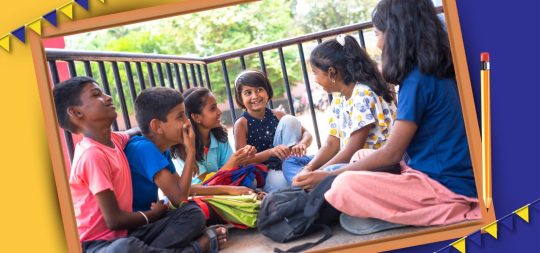
The Shri Ram Universal School brings finer elements of Learning arena using the best practices in the real time learning consciously. It assists in capturing their focus and keeping them engaged. The interactive program for school students on our campus is child-centric.
Children are engaged and inspired throughout the Teaching Learning sessions using the Modules of progressive curriculum. All the activities are well captured with specific objectives of student engagements and Learning outcomes
Projects based teaming r. Real-world activities bring them closer to skills and communication with each other. Arts and technology also add meaning with visual representation.
Outdoor activities in the campus like sports, music, Dance, Theatre, Visual Arts Athletics, swimming, skating, Taekwondo, Tennis, Cricket, Football, Basketball, etc and gardening, also keep the children active and brings in the Joyful Learning Trend every Day..
The Shri Ram Universal School we constantly focus on bringing in the Best Practices to create a special edge and hence continuously upgrade all pedagogical approaches To understand the power of our teaching-learning pedagogy, we welcome you to visit the campus.
#school#Teaching Learning#TSUS Students#Best Practices#Child Centric#Curriculum#Interactive Program#Learning
0 notes
Text
NAVNEET TOPTECH – An NEP and NCF Compliant Learning Management System
In the fast-changing world of 21st-century education, skills like experiential learning, critical thinking, collaboration, a mix of subjects, creativity, and communication are crucial. NAVNEET TOPTECH’s advanced Learning Management System (LMS) for CBSE schools, takes center stage, with the National Education Policy (NEP) and the National Curriculum Framework.
Let’s explore how this innovative…
View On WordPress
0 notes
Text
NAVNEET TOPTECH – An NEP and NCF Compliant Learning Management System
In the fast-changing world of 21st-century education, skills like experiential learning, critical thinking, collaboration, a mix of subjects, creativity, and communication are crucial. NAVNEET TOPTECH's advanced Learning Management System (LMS) for CBSE schools, takes center stage, with the National Education Policy (NEP) and the National Curriculum Framework.
Let's explore how this innovative platform is influencing the future of education.
Experiential Learning Redefined
NAVNEET TOPTECH's educational approach prioritizes experiential learning, encouraging hands-on activities to help students understand ideas better. It focuses on three key pillars - enabling students to observe, understand, and practise concepts. It promotes active learning through interactive 2D-3D videos, timelines, and more. This practical approach not only helps students understand academic topics but also develops vital skills to be successful in the 21st century.
Fostering Critical Thinking
Critical thinking is a crucial skill in today's world, and NAVNEET TOPTECH's Learning Management System (LMS) is designed to assist students develop it. This approach encourages students to thoroughly study material, consider other perspectives, and make well-rounded decisions. By introducing challenges and exciting circumstances, the LMS stirs students' interest and contributes to the development of a generation of students capable of solving intricate problems with critical analytical abilities.
Collaborative Learning for Enhanced Engagement
NAVNEET TOPTECH's Learning Management System (LMS) promotes collaborative learning among students. With the help of ELA’s (extended learning assignments), the students can engage in group projects, conversations, and interactive activities, and make learning fun. This system's capabilities make it simple for students to interact in real time, share ideas, work as a team, and learn from one another. This not only improves their academic capabilities but also helps them communicate better.
Embracing Multidisciplinary Learning
NAVNEET TOPTECH's online learning management software facilitates collaborative learning on many topics. This system encourages students to consider how different subjects relate to each other. This kind of learning prepares students for real-world situations, which frequently require an in-depth understanding. It deviates from the usual way subjects are split and promotes a more comprehensive educational experience.
Igniting Creativity and Communication
NAVNEET TOPTECH's LMS sparks creativity and communication. With tools for creating dynamic content, students express ideas in various ways, like through presentations and interactive projects. This system focuses on effective communication, offering forums and collaborative spaces for students to share thoughts and engage in meaningful discussions.
TopSchool, one of the best LMS for CBSE schools in India, is like a guide, bringing the National Education Policy (NEP) and National Curriculum Framework (NCF) principles into action. It's designed to make learning engaging and exciting by emphasizing hands-on experiences, thinking critically, working together, understanding different subjects, and expressing creativity and ideas. This platform is like a key to a new era in education, where students don't just receive knowledge but actively take part in their learning journey. Visit https://navneettoptech.com/ and dive into the future of education. Here, every click leads to exciting learning adventures.
#lms#learning management system#edtech#admission management system#fee management system#lms platform#school management system#lms for schools
0 notes
Text
Why Choose an MBA from Geeta University: Elevate Your Career with Cutting-Edge Education and Stellar Placements
In today's dynamic business landscape, an MBA stands as a stepping stone to leadership roles, unlocking doors to lucrative careers and personal growth. If you're seeking an MBA program that equips you with the tools and knowledge to thrive in this competitive environment, look no further than Geeta University. Nestled in the heart of Haryana, Geeta University isn't just a top-ranked institution; it's a launchpad for ambitious individuals aiming to revolutionize the business world.
Why Geeta University for your MBA?
Here's what sets Geeta University apart:
1. Pioneering the New Education Policy 2020: As the first university in Northern India to implement the NEP 2020, Geeta University prioritizes flexibility, experiential learning, and skill development. This translates to a curriculum that adapts to your goals and passions, shaping you into a well-rounded professional.
2. Flexible Choice-Based Credit System: Craft your learning journey with the freedom to choose courses from diverse domains. This system empowers you to specialize in areas that ignite your passion and cater to your career aspirations.
3. Technical Upskilling with Geeta Technical Hub: Stay ahead of the curve with cutting-edge technical certifications offered by the Geeta Technical Hub. From data science to AI, hone your skills in high-demand domains and increase your marketability.
4. Master Soft Skills at the Geeta Finishing School: Confidence, communication, and leadership are critical in today's business world. The Geeta Finishing School polishes your soft skills, transforming you into a polished professional ready to impress future employers.
5. Stellar Placements with a Maximum Package of 40 LPA: Land your dream job with Geeta University's impressive placement record. With 350+ companies visiting campus last year and a maximum package of 40 LPA, your future seems bright.
Beyond the Credentials: A Nurturing Environment for Growth
Geeta University is more than just academics. It's a vibrant community that fosters holistic development:
Spacious 40-acre campus: Immerse yourself in a stimulating environment conducive to learning, collaboration, and personal growth.
Outcome-Based Education: Focus on real-world application of your knowledge through case studies, projects, and industry collaborations.
Earn While You Learn: Gain valuable work experience through internships and job placements offered by the university.
Passion Programs: Pursue your artistic or entrepreneurial interests alongside your core studies with specialized passion programs.
Interdisciplinary Research Labs: Collaborate with faculty and peers across disciplines to tackle real-world challenges and solve complex problems.
Eligibility Criteria and Admission Process:
Bachelor's degree in any discipline with a minimum of 50% aggregate marks.
Valid scores in CAT/MAT/ATMA/CMAT.
Personal interview and group discussion.
Scholarships and Fee:
Geeta University offers a range of scholarships to deserving students, reducing the financial burden and making quality education accessible. You can access fee details and explore scholarship options on the university website: https://geetauniversity.edu.in/scholarships/
Table: Facilities at Geeta UniversityFacilityDescriptionClassroomsSpacious and well-equipped classrooms with cutting-edge technology.LibrariesExtensive collection of books, journals, and online resources.LaboratoriesAdvanced laboratories for practical learning in various disciplines.AuditoriumA state-of-the-art auditorium for events, conferences, and presentations.Sports ComplexA modern sports complex with facilities for various sports and recreational activities.HostelsComfortable and secure hostels for on-campus living.Medical CenterA well-equipped medical center providing healthcare services to students.CafeteriaHygienic and affordable cafeterias offering a variety of food options.drive_spreadsheetExport to Sheets
Design Your Own Degree: Chart Your Unique Path
At Geeta University, you're not just another student; you're the architect of your own academic journey. The innovative "Design Your Own Degree" concept empowers you to tailor your education to your specific goals and interests.
0 notes
Text
Enhancing Mathematics Learning in CBSE Curriculum through Experiential Techniques
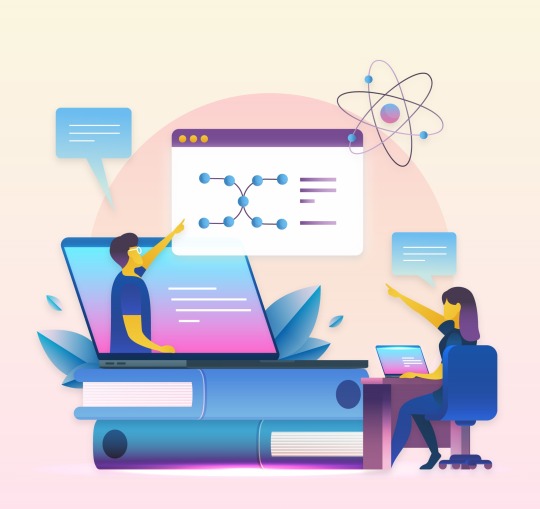
Discover the power of Experiential Learning in teaching mathematics within the CBSE curriculum! Our blog explores how integrating experiential learning techniques, such as real-world applications, manipulatives, project-based learning, technology tools, and cross-curricular integration, can transform mathematics education. By making mathematics relevant, hands-on, and engaging, experiential learning fosters a deeper understanding, critical thinking, and problem-solving skills in students. Our blog provides practical insights, examples, and strategies to implement experiential learning in mathematics classrooms, ensuring an enriching learning experience for students. Unlock the potential of experiential learning and empower students to excel in mathematics while developing essential life skills. Explore our blog now to discover how experiential learning can revolutionize mathematics education in the CBSE curriculum.
#Experiential Learning#learning app for teachers#Experiential Learning k-12#experiential learning lesson plans#NEP 2020#National Education Policy 2020#learning app for students#educational apps for students#new education policy 2020#k12 online school app#educational app for k 12 school#experiential learning with Nep#teachingmethods#nep 2020 teacher education#teacher education in nep 2020
0 notes
Text
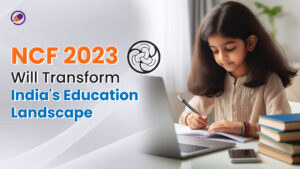

Discover NCF 2023: The Evolution of Education!
Are you curious about how India’s education system would have been revamped with NEP 2020 in effect? With NCF 2023, it's a reality now!
In our latest blog, "NCF 2023 Will Transform India's Education Landscape," we've covered all the necessary insights you need to know about NCF 2023, which include:
• All 4 stages: foundational, preparatory, middle, and secondary
• Focus on creativity, critical thinking, and experiential learning.
• Impact on curriculum, teaching methods, and assessments given to the students
and much more!
New and exciting learning rules await. Join us and learn in a fun way!
0 notes
Text
Easy implementation of NEP 2020 in schools
தமிழில்
Transforming teaching-learning systems in schools
It is a crucial for fostering a holistic and effective educational environment. Let’s delve into the three fundamental areas:
Content Support:Curriculum and Content: Schools should provide curricula and content that go beyond rote memorization. Here are some strategies: ¹Promote Creativity: Encourage students to think critically, explore diverse perspectives, and express their ideas creatively. ²Deep Understanding: Shift from surface-level learning to a deeper understanding of theoretical concepts. This involves connecting knowledge across subjects and real-world contexts. ³Interdisciplinary Approach: Integrate subjects to show their interconnectedness. For instance, history and science can be linked to understand societal changes.
Teachers:Professional Development: Continuous teacher training is essential. Teachers need support to implement experiential and collaborative learning pedagogies effectively. ¹Experiential Learning: Encourage teachers to create hands-on experiences for students. Field trips, experiments, and interactive projects enhance learning. ²Collaborative Learning: Foster collaboration among students. Group activities, discussions, and peer learning promote teamwork and critical thinking.
Assessment:Shift in Assessment Paradigm:Move away from purely memory-based assessments.Assess students’ application, analytical capabilities, and problem-solving skills.Consider formative assessments (ongoing feedback) alongside summative assessments (end-of-term evaluations). ¹Comprehensive Evaluation:Evaluate not only academic performance but also life skills, creativity, and ethical values.Assess communication skills, adaptability, and resilience.Encourage self-assessment and reflection.
Note: Education is not just about imparting information; it’s about nurturing well-rounded individuals who can thrive in an ever-changing world. Let’s continue to revise and innovate our educational practices!
பள்ளிகளில் NEP 2020ஐ எளிதாக செயல்படுத்தலாம்
பள்ளிகளில் கற்பித்தல்-கற்றல் முறைகளை மாற்றுதல்
ஒரு முழுமையான மற்றும் பயனுள்ள கல்விச் சூழலை வளர்ப்பதற்கு இது மிகவும் முக்கியமானது. மூன்று அடிப்படை பகுதிகளை ஆராய்வோம்:
உள்ளடக்க ஆதரவு: பாடத்திட்டம் மற்றும் உள்ளடக்கம்: பள்ளிகள் பாடத்திட்டங்கள் மற்றும் உள்ளடக்கத்தை மனப்பாடம் செய்வதற்கு அப்பாற்பட்டவற்றை வழங்க வேண்டும். இங்கே சில உத்திகள் உள்ளன: ¹படைப்பாற்றலை ஊக்குவித்தல்: மாணவர்களை விமர்சன ரீதியாக சிந்திக்கவும், பல்வேறு கண்ணோட்டங்களை ஆராயவும், அவர்களின் கருத்துக்களை ஆக்கப்பூர்வமாக வெளிப்படுத்தவும் ஊக்குவிக்கவும். ²ஆழமான புரிதல்: மேற்பரப்பு நிலை கற்றலில் இருந்து கோட்பாட்டுக் கருத்துகளின் ஆழமான புரிதலுக்கு மாறவும். இது பாடங்கள் மற்றும் நிஜ-உலக சூழல்களில் அறிவை இணைப்பதை உள்ளடக்குகிறது. ³இடைநிலை அணுகுமுறை: பாடங்களை அவற்றின் ஒன்றோடொன்று இணைந்திருப்பதைக் காட்ட ஒருங்கிணைக்கவும். உதாரணமாக, சமூக மாற்றங்களைப் புரிந்துகொள்ள வரலாற்றையும் அறிவியலையும் இணைக்கலாம்.
2. ஆசிரியர்கள்:தொழில்முறை வளர்ச்சி: தொடர்ச்சியான ஆசிரியர் பயிற்சி அவசியம். அனுபவமிக்க மற்றும் கூட்டு கற்றல் கற்பித்தல்களை திறம்பட செயல்படுத்த ஆசிரியர்களுக்கு ஆதரவு தேவை. ¹அனுபவ கற்றல்: மாணவர்களுக்கான அனுபவங்களை உருவாக்க ஆசிரியர்களை ஊக்குவிக்கவும். களப் பயணங்கள், பரிசோதனைகள் மற்றும் ஊடாடும் திட்டங்கள் கற்றலை மேம்படுத்துகின்றன. ²கூட்டுக் கற்றல்: மாணவர்களிடையே ஒத்துழைப்பை வளர்ப்பது. குழு செயல்பாடுகள், கலந்துரையாடல்கள் மற்றும் சக கற்றல் ஆகியவை குழுப்பணி மற்றும் விமர்சன சிந்தனையை ஊக்குவிக்கின்றன.
3. மதிப்பீடு: ¹மதிப்பீட்டு முன்னுதாரணத்தில் மாற்றம்: முற்றிலும் நினைவக அடிப்படையிலான மதிப்பீடுகளிலிருந்து விலகிச் செல்லுங்கள்.மாணவர்களின் விண்ணப்பம், பகுப்பாய்வுத் திறன்கள் மற்றும் சிக்கலைத் தீர்க்கும் திறன்களை மதிப்பிடுங்கள்.தொகுப்பு மதிப்பீடுகளுடன் (தொடர்ச்சியான பின்னூட்டங்கள்) கூட்டு மதிப்பீடுகளையும் (தொடர்ந்து வரும் பின்னூட்டங்கள்) கருத்தில் கொள்ளுங்கள். ²விரிவான மதிப்பீடு: கல்வித் திறனை மட்டுமல்ல, வாழ்க்கைத் திறன்கள், படைப்பாற்றல் மற்றும் நெறிமுறை மதிப்புகளையும் மதிப்பீடு செய்யுங்கள். தகவல்தொடர்பு திறன், தகவமைப்பு மற்றும் பின்னடைவு ஆகியவற்றை மதிப்பிடுங்கள். சுய மதிப்பீடு மற்றும் பிரதிபலிப்பு ஆகியவற்றை ஊக்குவிக்கவும்.
குறிப்பு: கல்வி என்பது தகவல்களை வழங்குவது மட்டுமல்ல; இது எப்போதும் மாறிவரும் உலகில் செழித்து வளரக்கூடிய நன்கு வட்டமான நபர்களை வளர்ப்பது பற்றியது. நமது கல்வி நடைமுறைகளைத் தொடர்ந்து திருத்துவோம், புதுமைப்படுத்துவோம்!
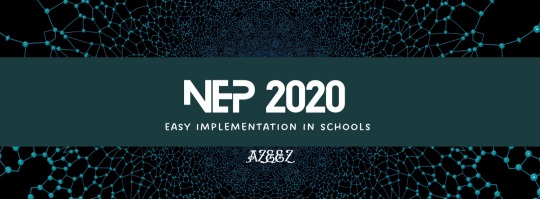
0 notes
Text
Trending Engineering Educational Sectors - ACEIT Jaipur
Since years, the engineering activities have been the core enablers of civilizational transformation. New technologies, engineering systems and products have been and continue to be the at the centre in sectors related to food, water, hygiene, clothing, housing, defense, energy, manufacturing, transportation, and in healthcare, education, entertainment, finance, governance, etc. Hence, despite the evolution of many other industry-specific courses, engineering education at best engineering colleges in Jaipur remains as one of most attractive options for students across the world.
A huge number of students continue to enrol in engineering courses as Industry 4.0 and Net-Zero Transition technologies present many bright career opportunities. Further, as engineering education mainly focusses on strengthening analytical and problem-solving skills, many engineering graduates find it easy to use their education for other career pursuits.
According to the research conducted by the experts of engineering colleges Jaipur, there are companies about new job openings in FY23 as the country’s economy is on a growth trajectory. It is based on a survey among executive-level managers and HR leaders covering sectors like construction and engineering, auto and auto ancillary, education, hospitality, FMCG, banking, and finance, among others. There are some emerging trends that are shaping the engineering education in the country today:
Outcome-based Education (OBE)
Outcome-based engineering education seeks to nurture students’ ability to conceive, design, implement, and operate complex value-added engineering products, processes, and systems in a modern team-based environment. Many progressive institutes are carefully defining their Program Educational Objectives, Program Outcomes, Program Specific Outcomes, Program-specific desired minimum level of competence for POs and PSOs, Course Outcomes, Course Articulation Matrices, Program Articulation Matrices, and also developing their monitoring systems for Course level and Program Level Outcome Attainment.
OBE’s implementation requires that students of top engineering colleges in Jaipur are repeatedly engaged in the core engineering processes like designing, predicting performance, building, and testing throughout the curriculum. Many universities and engineering institutes are making systematic reforms to implement OBE effectively through appropriate inclusion of inductive pedagogies like project-based learning (PBL), experiential learning, etc.
Choice Based Credit System (CBCS)
UGC introduced CBCS to make higher education broad-based and promote learner-centricity, flexibility, and inter-disciplinarity. Extent of its implementation is an important parameter in NAAC accreditation process. NEP has also supported it. Some universities have already implemented CBCS in their engineering programs and many more are in the process of doing so.
Industry-specific programs
Many universities and institutes of top BTech colleges in Jaipur are including industry-specific engineering courses in their curricula. In these programs, the students are exposed to the latest engineering tools, technologies and trends in the engineering sector. The courses are also regularly updated from time to time.
Flexibility of External Courses
Many universities are offering flexibility to earn credits through MOOCs and courses at partner universities in India or abroad. In addition to facilitating several courses, some progressive universities have even entered partnerships with online education providers like Coursera and edX and free/paid access to these online courses to their engineering students. Faculty are integrating these online courses in their curricula in many different ways. Also, some universities offer the option for doing a semester at some partner university abroad.
Industry Internships
For many decades, one summer internship has been an essential component of almost all engineering programs of the list of engineering colleges in Jaipur. Earlier, only a few universities had also created a provision of a full semester-long internship in the final year. Now many more universities follow this model. While, there are serious difficulties in managing short-term summer internships, industry is much more interested in engaging students for this full semester-long final year internship.
Focus on Sustainability
Institutions of higher education have started to include sustainability in the curriculum of various disciplines across the globe. Ability to consider sustainability related issues in engineering processes of planning, design, implementation, etc., is now considered as an essential desired program outcome of many engineering programs. Many universities are transforming their engineering curricula to include sustainability related topics in their courses. NAAC’s requirement of various green campus initiatives is also supplementing this trend.
Soft skills development
Communication and other soft skills are essential for engineers of engineering college Jaipur as they are expected to be proficient in presentation, organization, leadership, and conflict resolution. Increasingly the engineering institutes have been including soft skills development programs and courses in their curricula in many different ways.
Building entrepreneurial and innovative abilities
Entrepreneurship and innovation have the potential of turning fresh graduates into job providers rather than job seekers. Understanding the true potential of entrepreneurship, institutes are building incubation centers to help students hatch their innovative plans. Engineering institutes are also providing all necessary support from finance to infrastructure to students today and many students have come up with successful start-ups because of this process. Some universities have started giving the option to students to work on their own start-ups in lieu of internships and/or projects work.
Conclusion
As industries and businesses across sectors are evolving by leveraging new technologies like Artificial Intelligence, Automation & Robotics, New Materials, New Manufacturing & Construction Technologies, Biotechnology, Clean Technologies, Big Data, Internet of Things (IoT), High performance Computing, AR/VR, Blockchain, etc. Engineering institutes like best BTech colleges Jaipur are transforming their curricula to meet the new demands of the industry by including these technologies in their curricula and also adopting transformative approaches. Also, it includes increasing emphasis on industry internships, sustainability, soft skills, innovation, and entrepreneurship, as well as offering options for external credits and industry specific programs.
Many progressive universities are redefining and transforming their curricula and students experience in different ways. With these new trends, the engineering education is becoming ready for producing engineers who can take the country’s economy and technological might to newer heights. For motivated students, the engineering education continues as a great gateway for some of the best career options. It also offers the opportunities to prepare themselves as change agents to transform the world and make it more beautiful, prosperous, happier, healthier, and sustainable.
0 notes
Text
5+3+3+4 Education system according to NEP 2020
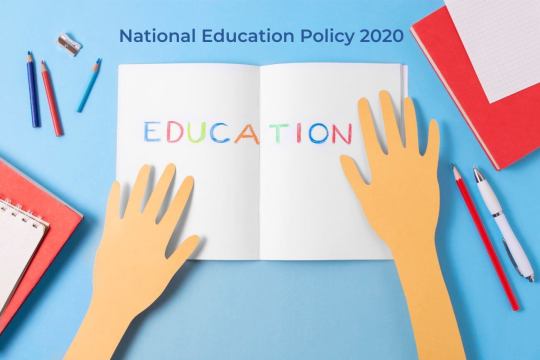
The National Education Policy 2020 of India replaces the traditional 10+2 structure with the new 5+3+3+4 education system, which is one of its most effective elements. The new educational plan aims to create a more comprehensive foundation for secondary school by using the 10 plus 2 years structure, which was focused on a constructive method of teaching. For example, the 5+3+3+4 system gives students more freedom of choice by allowing them to acquire an extensive understanding at the elementary level before letting them choose the educational path they want to take later on with the guidance of people involved in teaching jobs. Students can now develop their talents and interests in an even more tailored and individual way thanks to this revised approach, which better prepares them for their future pursuits.
What exactly is the 5+3+3+4 Education System?
There are no additional school years in India's 5+3+3+4 education system. Since the length of time a student spends in an educational institution is constant, the heavy burden has lessened. With a 5+3+3+4 educational pattern, the National Education Policy 2020 includes playschools as well as nursery and kindergarten classrooms in its definition of "formal education." This strategy takes into account the distinctions between professional and academic interests as well as extracurricular and curricular activities. The framework makes sure that every factor is taken into account for a comprehensive educational experience. Students can flourish and grow in this supportive environment, enabling them to realize their greatest potential.
Defining the 5+3+3+4 structure
Based on the new school education system defined in NEP 2020, students are expected to spend five years in the Foundational stage, three years in the Preparatory stage, the Middle Stage lasts three years, and the Secondary Stage lasts four years. The phases have been separated into those that correspond to a child's cognitive stages in early childhood, school, and secondary school.
The many levels of the new school education system are broken down by age as follows-
5 year foundational stage:
For children ages 3 to 8
Preschool, Anganwadi, Class 1, Class 2, and Class 3 The national education policy states that the fundamental level of education will include two years of primary school (classes 1 and 2) after three years of preschool or Anganwadi education. The focus of this stage will be on the growth of language and based on play or activity-based teaching strategies.
The Three-Year Preparatory Stage:
For children 8 to 11 years old
For classes in grades 3 through 5 Language and numeracy skills will be emphasized during the preparatory time. Here, relationships in the classroom and the element of discovery would be used, as well as play and activity-based teaching and learning.
Three years of middle-stage
11 to 14 years of age
6th through 8th-grade classes The critical learning objectives that will be the focus of this level of school instruction, according to NEP 2020, mark a considerable change from the rote learning techniques that have traditionally been employed in our educational system.
This stage will be centered on experiential learning in the sciences, arts, mathematics, social sciences, and humanities.
Four years at the secondary stage
The age group of 14 to 18 years age
for grades 9th through 12thThis level will include courses 9 and 10, as well as classes 11 and 12. The biggest shift in these seminars is the move to a multidisciplinary system where students can select from a variety of topic combinations based on their skills and interests as opposed to being rigidly categorized into the Arts, Science, and Commerce divisions. Once more, this level will place emphasis on critical thinking and mental flexibility.
Advantages of the 5+3+3+4 configuration
Lays the fundamental framework
India faces enormous difficulties when it comes to transferring children from Anganwadis and playschools to formal education. Children require a solid foundation at the fundamental level in order to be able to continue learning as they get older.
The new initiative emphasizes the significance of development by enrolling kids between the ages of 3 and 6 in formal education.
If students lack the necessary language and math skills, they will not be able to teach themselves. The ability to learn for oneself could suffer greatly if the basis of learning is weak.
Practitioners as well as scholars agree that early childhood education and care (ECCE) is crucial in defining a child's future. As a result, the NEP's biggest accomplishment is perhaps the inclusion of pre-primary under its purview.
Better career guidance
Stronger career counseling services are needed to help students make the best decisions possible because the new educational system includes multidisciplinary education and topic selection in the middle school years.
Choosing favorite themes as early as middle school may put the onus of making a professional decision on the shoulders of the parents or the teacher, who is frequently ill-equipped to do so.
As a result, the switch from the 10+2 to the 5+3+3+4 system offers lots of opportunities for student growth and sheds light on the areas where schools can concentrate to advance.
Final Thoughts
The framework of the educational model has been updated from the classic 10+2 to the most recent 5+3+3+4 model. With so much potential for student progress in the new system, it is clear which areas in schools still require work. A cumulative change has also been made to the exam format. The most recent pattern update will evaluate key ideas and knowledge usage in board exams. Using scientific approaches to teaching and learning models, the educational system seeks to bring India up to par with the top nations of the globe. For all stakeholders to participate in the educational process, teaching will provide solutions for the educational infrastructure as well as a collection of school ERP & LMS components.
Source - Jobs in Education Blog
0 notes